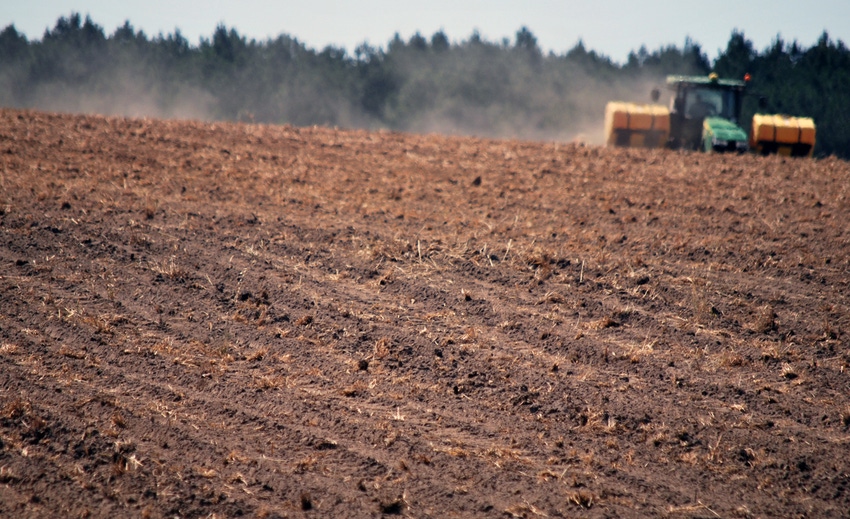December 28, 2016

The final numbers aren’t in on how producers finished 2016, but I suspect it will be a mixed bag with some producers doing OK based on above-average yields, good job marketing and containing production cost. Other producers may be struggling with average- to below-average yields, average prices and higher production costs. Another group may finish in between, operating around the breakeven point.
It is the last two groups that may continue to struggle in 2017.
Years ago, Dr. Clark Garland, professor emeritus with the University of Tennessee Department of Agricultural Economics and instrumental in developing the Tennessee MANAGE program, came up with what he considered to be warning signs for pending financial difficulties. Dr. Garland, who I consider to be a mentor and a friend, recently shared these nine warning signs. I add a tenth one based on the current situation.
Accounts payable increasing including use of credit cards – Account payable dollars increasing and an increase in the number of different accounts over time can be indicative of cash flow problems. It can be easier to open up another account at another supplier, vendor or credit card than to address a cash flow shortfall. It may seem like a short term solution but can quickly get out of control. Developing an accurate balance sheet over multiple years can help spot this warning sign.
Increase in frequency and amount of impulse purchases – Impulse buying whether for business or pleasure is in itself an unplanned purchase. It is related more to anxiety, unhappiness, and trying to fill an emotional need rather than an actual business or personal need. As financial problems difficult, an impulse purchase may be a way for a producer to say that he/she is not having financial difficulty based on the fact that they just purchased this item. Left unchecked, an increase in impulse purchases can lead to increased debt and unhappiness.
Working capital – Has your working capital been decreasing? We had a few years as commodity prices soared to record levels that producers were able to increase and in some cases create capital reserves. As profitability has tightened the last couple of years producers have had to burn through their reserves and working capital has decreased. A decrease in working capital would be expected, but if it has turned negative then trouble could be ahead. Again, a good balance sheet can help detect this problem.
Record keeping practices decline – If a producer is going backward financially it may not seem as bad it he/she is not keeping up with it. A lack of record keeping and not knowing financially where you are can be very detrimental to the farm business. Good records can help identify where problems are and be a base to help solve them.
Hides part of finances from other family members and lenders – The financial situation always eventually becomes known and when it does there are generally few alternatives available to help improve it. It is better to solicit input from those affected than to hide it as they may have beneficial input or suggestions.
Diverts proceeds – In many cases this might even be a fraudulent activity if liens on the proceeds are in place.
Living expenses increase rapidly and expenditures for capital assets increase – I think this one goes along somewhat with impulse purchases as this maybe fills a more psychological need that would show I am not having financial problems because I am able to spend these dollars on living expenses and or capital assets. If living expenses increase as net farm income decreases then while the farm may still be profitable, a negative cash flow could drag the operation down.
Works less and plays harder – Out of sight out of mind.
Domestic situation changes – Very difficult for a couple to go broke together.
Illegal farm activity, including off-label spraying of chemicals– This is one I am throwing in. The majority of producers follow chemical labels on spraying the appropriate chemical with the correct technology. However, for instance dicamba-tolerant crops were available in 2016 without the approved labeled chemicals. Temperature and weather conditions were just right in the Mid-South for an off-label and illegal application of dicamba on tolerant crops to drift and cause numerous problems for other producers. We may have thought it could happen in 2016 but we definitely know it can happen in 2017. It was dicamba in 2016 but can very well be another chemical in the future as new technology is developed. These technologies to be successful must be followed as dictated by training and labels or agriculture could lose them. A don’t care – I can do what I want attitude without considering repercussions to others is a sure sign of uncontrollable behavior. It is also a sign of desperate behavior that can be caused by financial difficulty.
As we start 2017, examine your farm operation and see any of these warning signs apply. If they do, then explore ways to correct them. Recognizing that there is a problem is the first crucial step. Producers in financial difficulty are most likely going to have to make changes in their operation. The sooner that can be realized, the more alternatives are available.
The land-grant university system including Extension and research is willing and able to assist producers. We are just a call or email away and it is our mission to work with and assist producers in good and not so good times.
You May Also Like




